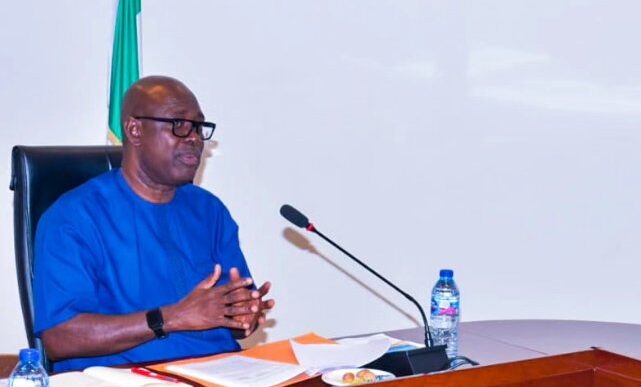Senator Heineken Lokpobiri, the Minister of State for Petroleum Resources in Nigeria, recently highlighted the immense potential of Africa’s estimated 125 billion barrels of oil reserves as a significant asset base for driving development across the continent.
He made these remarks at the 3rd African Local Content Roundtable, a conference organized by the African Petroleum Producers Organization (APPO) and hosted by the Nigerian Content Development and Monitoring Board (NCDMB) in Abuja, Nigeria.
In his address, Senator Lokpobiri underscored the pivotal role that Nigeria is poised to play in the transformation of the African oil and gas industry. He expressed confidence in the capability of indigenous companies to enhance production and emphasized the government’s commitment to supporting them in this endeavor. While acknowledging the substantial challenges facing the industry, he reiterated the government’s unwavering determination to overcome them.

Senator Lokpobiri’s vision for Nigeria encompasses several crucial elements, including in-country value addition, environmental sustainability, and the promotion of intra-Africa trade. He emphasized that these goals are aligned with the Nigerian government’s broader plans for the oil sector, as well as the renewed hope agenda of President Bola Ahmed Tinubu. This agenda centers on fostering economic self-sufficiency by looking inward for goods, services, and manpower to meet the strategic needs of the nation.
The Minister pointed out the critical importance of the estimated 125 billion barrels of oil reserves, which account for about 10% of the world’s carbon reserves. These vast reserves serve as a substantial asset base that has the potential to drive sustainable development and growth throughout Africa. Senator Lokpobiri stressed the responsibility of African oil-producing countries to harness their oil and gas resources for the benefit of their citizens, businesses, and governments.
He also acknowledged the various challenges inherent in the sector, such as price volatility, dependence on foreign technology, reliance on offshore funding, and growing sustainability concerns. To address these issues and promote sustainable development and inclusive growth, he called for collaboration and the implementation of effective strategies among industry policymakers.
Ms. Olu Verheijen, the Special Adviser on Energy to President Bola Ahmed Tinubu, shed further light on the administration’s primary focus areas for boosting oil production in Nigeria during an interview at the recent Africa Oil Week (AOW) conference.
One of the key focus areas is security, as ensuring the safety of oil and gas assets is paramount. This includes addressing issues like crude oil theft, particularly in the Niger Delta region. The insights garnered from discussions with oil investors at the conference underscored the urgency of tackling insecurity, as it directly impacts the sustainability and profitability of the industry.
In addition to security, comprehensive development in the Niger Delta region is another key priority. The administration recognizes that promoting development is not only a strategic move but also an essential step in providing employment opportunities for the region’s youthful population. This approach not only protects oil and gas assets but also contributes to the well-being of the local communities.
Furthermore, the government is focusing on engaging with existing oil and gas investors who are already operational in Nigeria. By understanding their objectives and aligning government efforts with their interests, Nigeria seeks to build strong partnerships and attract further investments.
This approach has yielded promising results, with an impressive $55 billion worth of investments already lined up. Ms. Verheijen shared that in September 2023, the administration unveiled significant investment opportunities, with a projected $55.2 billion in investments by 2030. A substantial portion of this, approximately $13.5 billion, is expected to be invested by these companies within a year.
Notably, the short-term investment component of $13.5 billion currently in the pipeline is anticipated to contribute to achieving a production goal of 2.1 million barrels per day by December 2024, provided that no unforeseen challenges hinder progress. These developments signify a promising future for Nigeria’s oil sector and its potential to contribute to the nation’s economic growth and development.
Support InfoStride News' Credible Journalism: Only credible journalism can guarantee a fair, accountable and transparent society, including democracy and government. It involves a lot of efforts and money. We need your support. Click here to Donate
